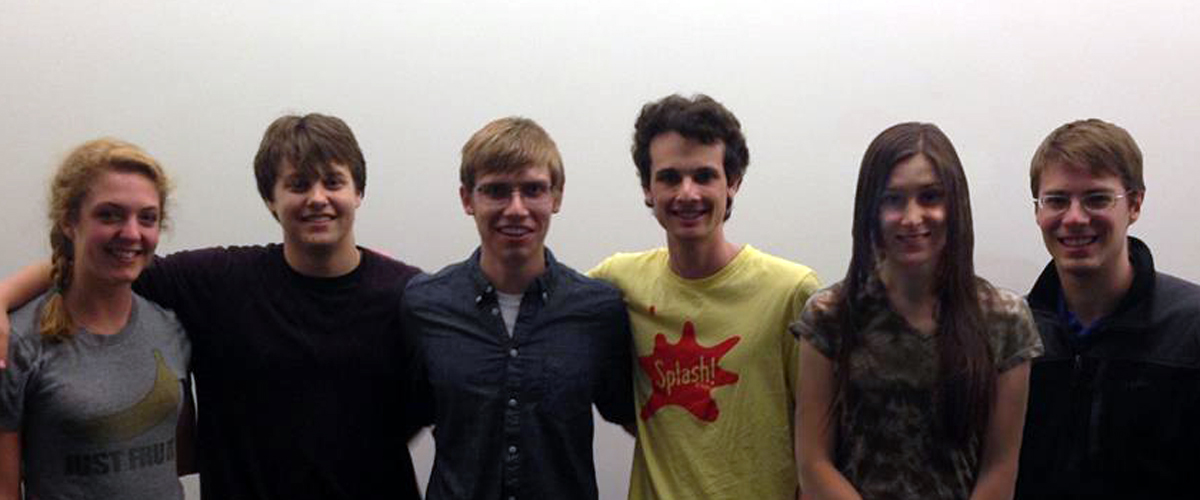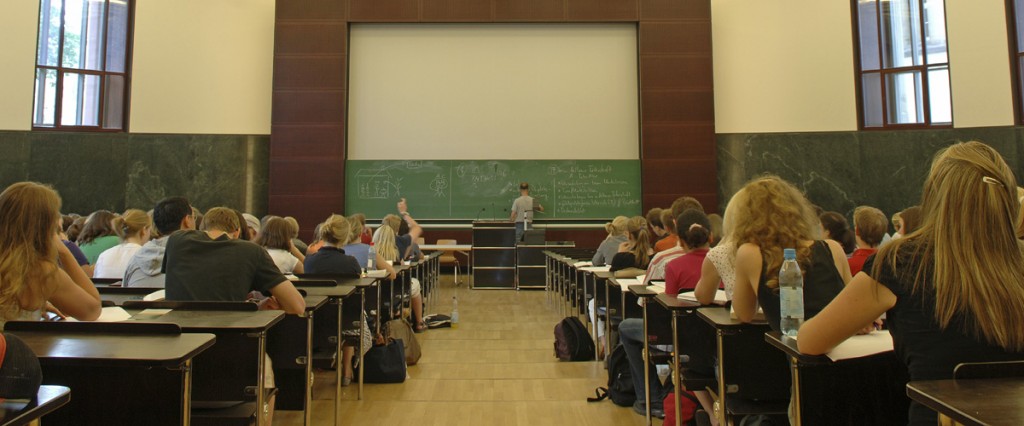by Jeff Cutler
College and high school students learning together? The thought of this intellectual cross-pollination is intriguing and the results are even more interesting. According to Kristian Teichert, a second-year biochemistry student here at Northeastern, this might be the future of education.
Teichert and others formed a program called NEPTUN (NorthEastern Program for Teaching by UNdergratduates) here on campus. NEPTUN is a student group (assisted by professor advisors) that designs events to bring high school students to Northeastern for a different type of learning.
The classes are crafted by current college students and often modeled around non-traditional interests and passions. As an example, Teichert used topics of morality and science to create and teach a class called “What Makes You Moral?”, with content focused on the biological theories of morality.
Through the program, Northeastern students are able to learn while teaching – a great way to reinforce their education and share knowledge with future college students.
The program provides college students “the opportunities to not only bring more attention to their passions and talk about subjects that they love, but in doing so it also helps to solidify their knowledge in the area,” said Teichert.

The NEPTUN E-Board (Left to Right): Keila Sheetz, Kevin Gozzi, Kristian Teichert, Samuel Kaplan, Catarina Smith, David Reedy
With help from faculty advisor Frauke Argyros, the Center for STEM Education, the Northeastern University Scholars Program, the Northeastern University Honors Program, the Civic Engagement Program, the College of Science, and the Center for Student Involvement, NEPTUN is experiencing great popularity on campus.
NEPTUN is actually part of a nationwide initiative started at MIT. According to Teichert, the Educational Studies Program (ESP) at MIT developed an offshoot called Learning Unlimited. Learning Unlimited brings programs similar to the ones offered by NEPTUN to colleges and universities nationwide. Years ago, Teichert took some of these classes and recently realized a program like this would be a great addition to Northeastern.
To that end, NEPTUN offers education in a non-traditional classroom setting students may not have been exposed to otherwise. They’ve formed classes on psychopathy, ballroom dance, and even crime scene investigation.
Via their first event in March 2014, Teichert and his group brought 125 students to campus for a selection of 35 course subject and students were allowed to take up to five classes.
The program is tied closely to Northeastern and Teichert’s course of study at the College of Science. In fact, the College of Science has had had an impact on course offerings ranging from the aforementioned Crime Scene Investigation to Physics, Neuroscience and Biology-related topics. Though Teichert says the teaching is not a rehash of base-level coursework.
“We encourage our teachers to stay away from the basics of the topics,” said Teichert. “Such as basic physics, chemistry and biology so that the students can have the opportunity to experience other interesting topics.”
Though they’ve been recruiting students via word of mouth, Teichert says the Center for STEM Education has been instrumental in spreading the word, as has MIT ESP. Both programs have sent mailings to their constituents that boosted enrollment and interest.
Ultimately, Teichert has some goals for the program that mirror those of any large college or university.
“Our goal is to provide educational enrichment opportunities to high school students in the Greater Boston area through our programs,” said Teichert. “In the fall, we plan on running a multi-week program similar to our Splash event where the classes run for four weeks and delve deeper into the topics at hand.”
With hopes for expanded membership and more involvement from students and professors, Teichert is excited for NEPTUN’s future at Northeastern. His longterm goal is to achieve the prominence other undergraduate teaching programs have nationally.
For now, Teichert plans to continue his biochemistry studies while always thinking of new ways to help students nurture an interest in science and learning.

